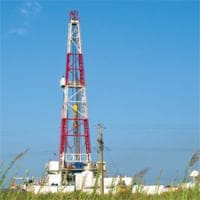The Problem
New technologies including hydraulic fracturing (or “fracking”) for mining natural gas have dramatically increased its availability in the United States. The economic potential of natural gas is tempered by concerns around environmental damage, however. While federal legislation requires that mining companies take out a bond to cover the costs of unintended ecological damage, no such requirement exists for drilling on state or private land. Moreover, the minimum bond amount for drilling was set in 1960 and has not been updated.
The Proposal
Bonding requirements are well suited to address environmental risks, but they should be modernized and strengthened. Recommendations include raising the required bond amount for federal land drilling sites; establishing separate bonding requirements for fracking sites, which pose unique concerns; encouraging states to establish reasonable bond amounts for nonfederal land drilling sites; and eliminating the use of blanket bonds, which allow extractive companies to spread the application of a single bond across multiple sites.
Abstract
Hydraulic fracturing and other recent technological advances have dramatically increased the availability of natural gas, potentially providing tremendous benefits to the U.S. economy. At the same time, however, these new forms of drilling raise a number of potential environmental concerns. Legislation dating back to the 1920s requires natural gas producers to post a bond prior to drilling to clean up sites when accidents occur, and to guarantee that producers adequately reclaim drilling sites after production is completed. This approach makes sense, but current minimum bond amounts provide inadequate levels of protection. Minimum bond amounts were set in 1960 and have never been updated for inflation.
This proposal would increase federal minimum bond amounts to adjust for inflation and encourage states to adopt similar minimum bond amounts for drilling on non-federal land. In addition, this proposal would eliminate provisions that currently allow companies to meet bonding requirements by posting a single “blanket” bond. Stronger bonding requirements would help ensure that funds would be available to clean up sites when accidents occur. But more importantly, stronger requirements would also incentivize producers to work hard to avoid environmental damages in the first place.




